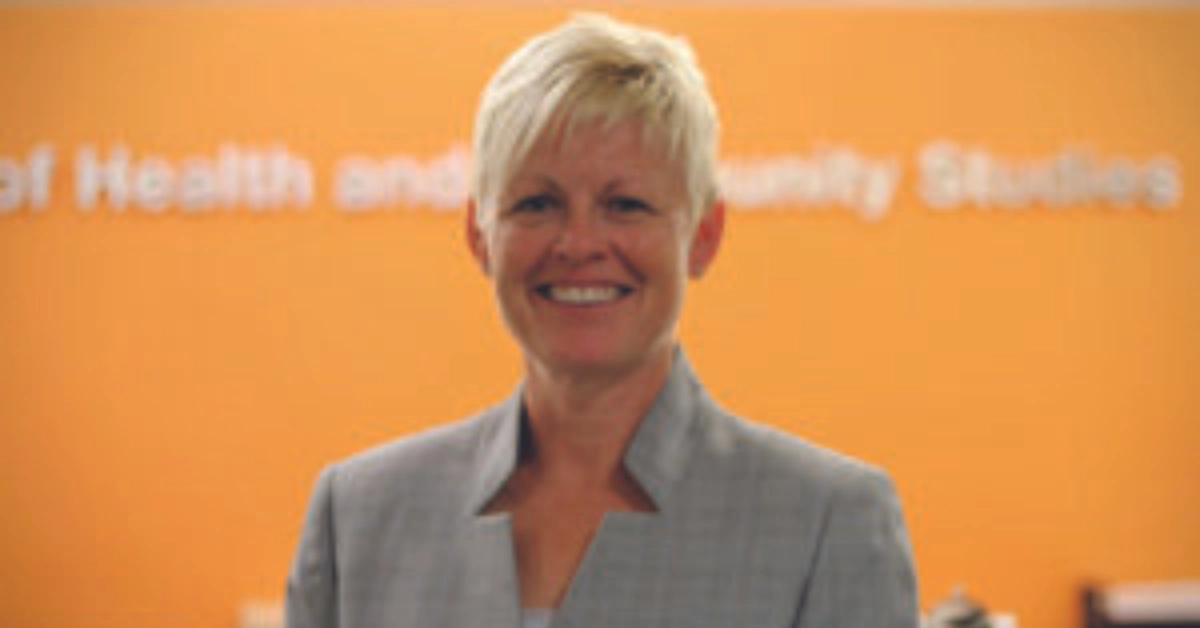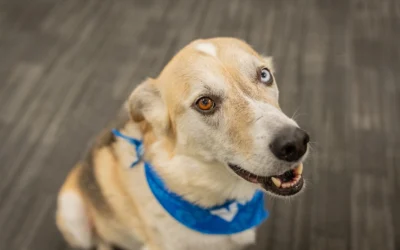Danielle Campbell is one of MacEwan University’s newest faculty members, joining the school as an assistant professor in the Police and Investigations program. Campbell’s previous career, however, was as illustrious as it was riddled with challenges.
She was Edmonton’s first female dog handler, the first female deputy chief of police of the Edmonton Police Service (EPS), the first female forensic polygraph examiner and was also the highest ranking woman to serve on the force. There is no doubt she will provide students with vast amounts of knowledge from her past experiences.
When asked about joining MacEwan University, Campbell said she is looking forward to teaching and learning from students.
“If any of my experiences that I’ve had the privilege of gaining through my time with the Edmonton Police Service can benefit future bright minds and future leaders in whatever path they choose, I thought, what a privilege (to be able to share),” she says.
As a deputy chief, Campbell was in charge of all investigative areas, from homicide to economic crime.
Her jurisdiction also covered all canine and flight operations programs, as well as victim services units, police communications and many of the plainclothes operations running in Edmonton.
In order to get to the position of deputy chief, Campbell started as all beginning officers do: in patrol.
“It’s like kindergarten,” she says. “You have to learn the law, you have to learn about cases, and you have to learn how to be a good investigator.”
Transferring to the canine unit had been a dream of Campbell’s since she was in high school and was the main reason she joined the EPS.
“(When I was) in grade 10, my sister married an RCMP dog handler (named) Jim … and as a child I loved to play hide and seek, my favourite game, and I couldn’t believe that Jim got paid to play hide and seek, find the bad guys and bad gals that were hiding, with his dog, and basically, ‘tag, gotcha, you’re it.’ And you got paid for that!” she says.
“So, I was hooked … and I just thought ‘that’s a great fit for me.’”
Edmonton’s canine unit was established in 1967 by Val Vallevand, and in 1994 Campbell became the first female dog handler for the EPS.
“It was a different day. Misogyny was alive and well within the Edmonton Police Service,” she says.
“There were many individuals in the organization all the way up to very high ranking officers, senior leaders of the organization, who didn’t believe that women could do certain jobs within the policing culture.”
“They weren’t my barriers; they were other people’s barriers that I refused to accept.“
Danielle Campbell
“I disagreed. I knew it didn’t matter about gender; gender wasn’t even in the equation.”
In training to be a dog handler, a constable has to quarry, which means becoming the bait for dogs already in the unit. The next step is to become a puppy handler.
At first, Campbell was forbidden to quarry by her senior executive officer, but that did not stop her.
By refusing that order and continuing to quarry – in spite of receiving a decent amount of ridicule along the way – she became a puppy handler, and in August of 1994, made history with her dog Echo.
“I don’t see myself as a trailblazer, I never have. I see myself as someone who refused to let barriers prevent me from things that I knew I could do. They weren’t my barriers; they were other people’s barriers that I refused to accept,” Campbell says.
While she may not consider herself a trailblazer, many people do. Campbell also happened to be the first openly gay officer in the EPS, making her a role model for not just women, but for those in the LGBTQ+ community as well.
Her fierce determination — to not be stopped by barriers that stood without reason and to accomplish every goal she had because she knew she could — sets an example for people of every gender and every sexual orientation.
“I have never been ashamed of who I am as a human being, and the fact that I happen to be gay, I’m not ashamed of that. It’s who I am, it’s how I was born,” she says.
“If other people are uncomfortable with that, my sincere hope is that based on education they become more informed.”
“If there have been other men and women who have joined the Edmonton Police Service because they knew that they could and they felt that if they happened to be gay, for example, or bisexual or whatever their orientation was, if they felt ‘Well, if she could do it, I could do it,’ if that gave them hope, I’m thrilled,” she says.
When asked about becoming a teacher, Campbell says although she had many wonderful experiences as part of EPS, all things need to come to an end. She hadn’t thought about taking on any new ventures after retirement aside from trying to be a better friend, family member and spouse, since her previous job had been so time-consuming.
However, in learning about the chance to teach at MacEwan, Campbell was excited to take the opportunity to do something new. “I’m a recruit, and my colleagues that work in the faculty, and this department specifically, have been very kind to me and very welcoming in so many ways, because I am the newbie,” Campbell says.
As an assistant professor in the Police and Investigations program, Campbell has an extensive amount of knowledge, and she’s excited to pass it on to her students.
“I’m excited to be here, I think MacEwan University is on the cutting edge. It’s in its infancy and it’s growing. It’s a fascinating institution, and it’s only going to get better, and I’m thrilled to be here. It’s wonderful to be here,” Campbell says.
Photo by Roxanne Auger





0 Comments